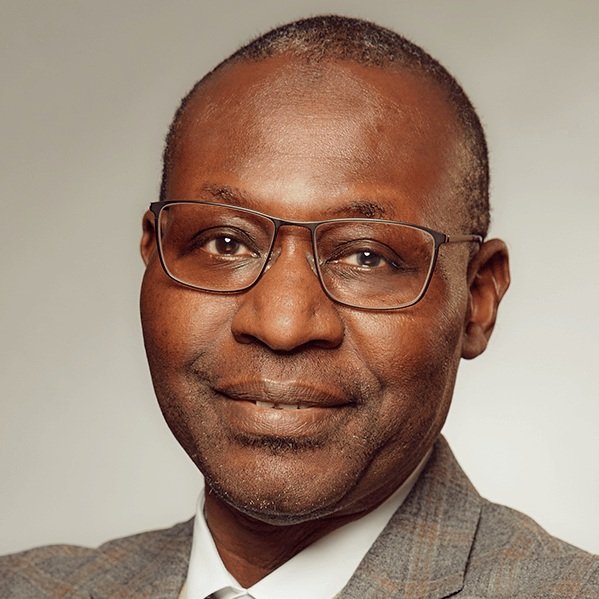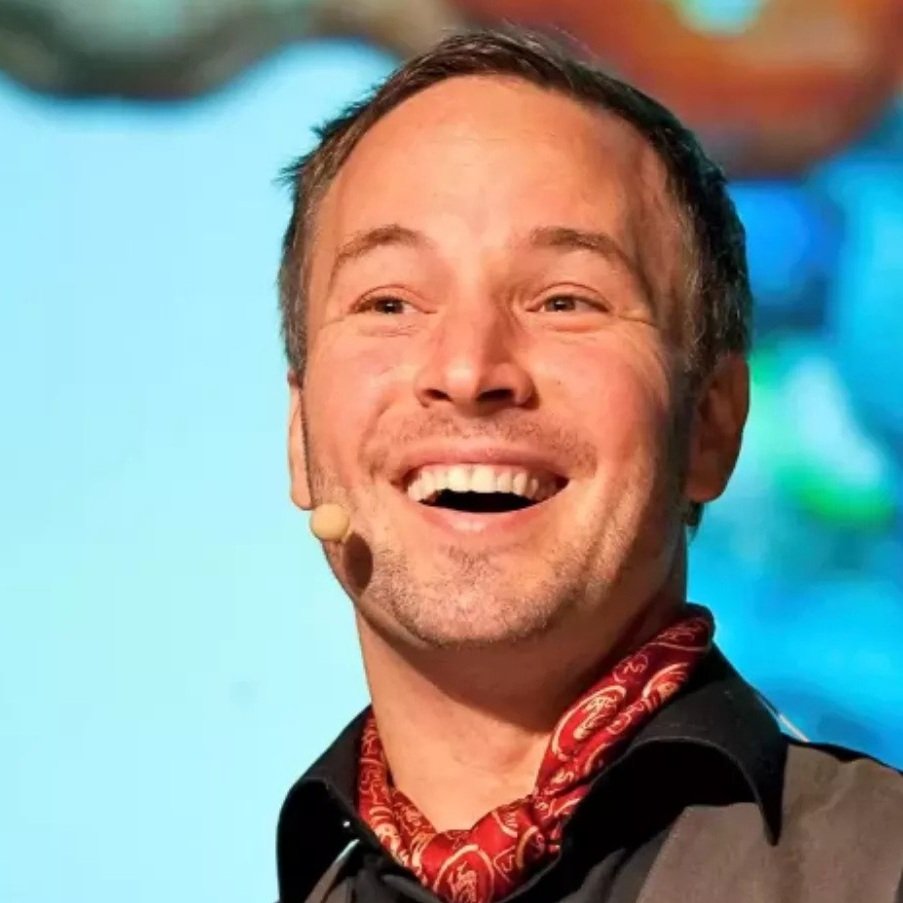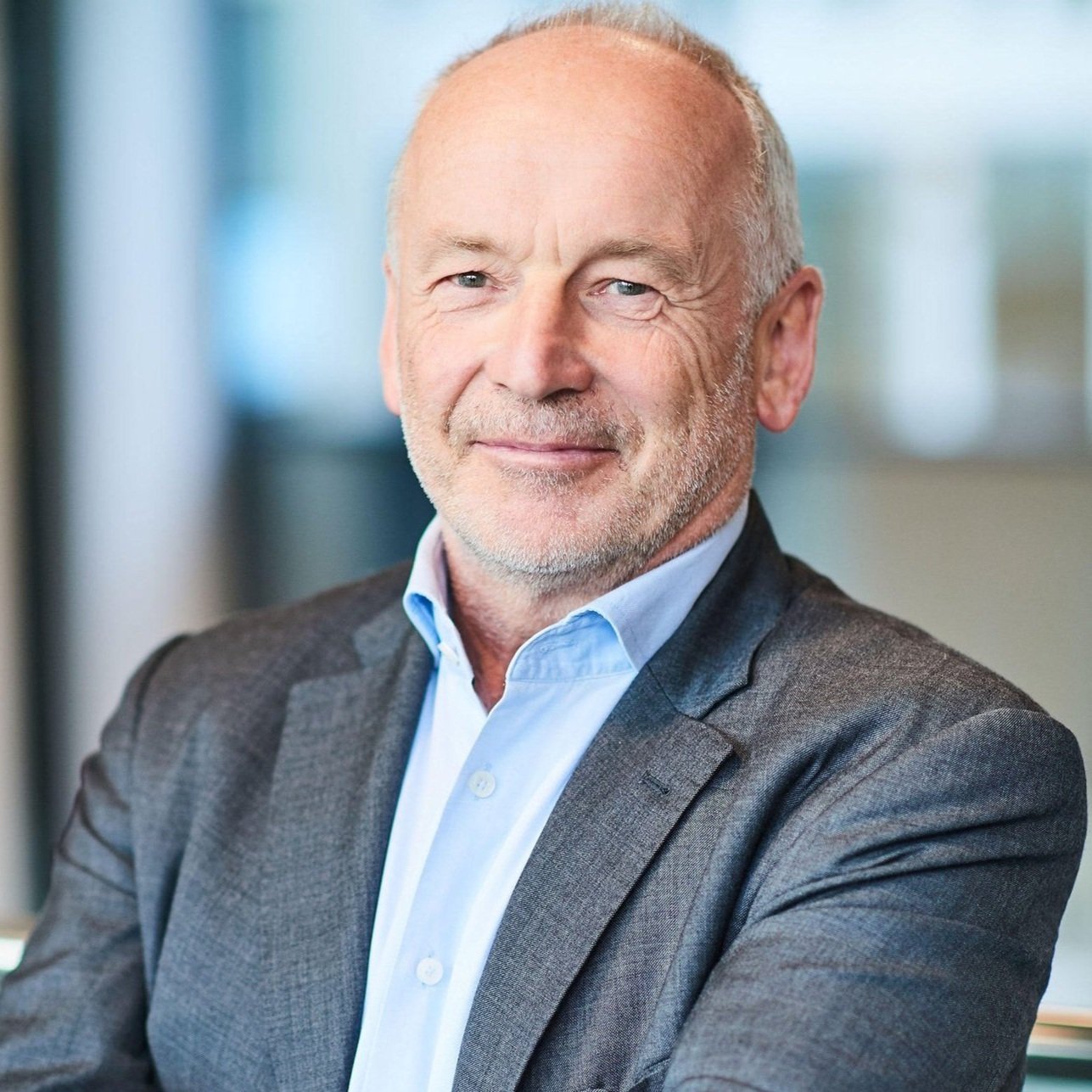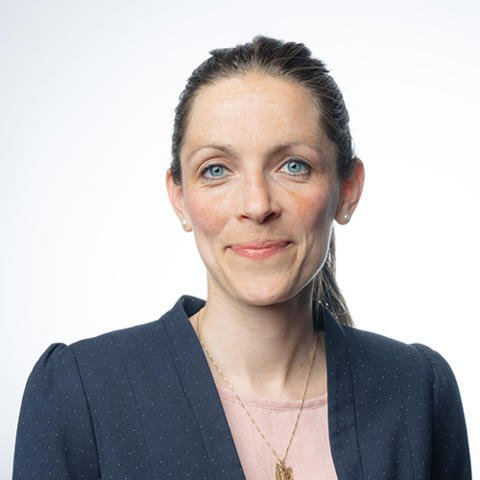How open science and radical collaboration can solve the climate emergency: Key takeaways from COP28 (Part 1)
Photo credit: Frontiers
The 28th Conference of the Parties (COP28) took place in Dubai, United Arab Emirates from 30 November to 12 December 2023. The gathering marked a critical moment for global transformative climate action as world leaders negotiated and agreed action on how to tackle climate change, limit emissions, and halt global warming.
Open science platform Frontiers and the Frontiers Research Foundation participated in COP28 to ascertain the undeniable power of open science and advance the mission to make science open so that scientists can collaborate better and innovate faster to deliver the solutions that enable healthy lives on a healthy planet.
As part of their latest initiatives to support global efforts to combat climate change, Frontiers and the Frontiers Research Foundation organized several complementary panel sessions around open science and pathways towards innovative, sustainable solutions and actions featuring prominent experts and decision makers from policy, academia, and industry. The first session, the United Nations Climate Change Global Innovation Hub Opening Ceremony, officially opened the United Nations Global Innovation Hub (UGIH) COP28 dialogues, featuring high-level statements from UGIH supporting partners on their motivation, vision, and the Hub’s role in facilitating collaboration. It also announced the signing of a Memorandum of Understanding (MoU) between Frontiers and the United Nations Framework Convention on Climate Change (UNFCCC) to co-develop the Hub’s Digital Platform. Jorn Verbeeck, senior manager of sustainability and ESG at KPMG and board member of the European Union’s Climate Neutral and Smart Cities Mission, moderated the panel.
The second session, Systems Change and Innovation for Climate and Sustainability Action, focused on radical collaboration and a need-based, solution-oriented approach to innovation combined with moonshot mindsets and systems thinking to take appropriate action. The panel was moderated by Massamba Thioye, Executive, the United Nations Framework Convention on Climate Change (UNFCCC).
Below, we offer a summary of the expertise showcased during the two sessions. This includes the role of open science in accelerating solutions and the need for systematic transformation that places humans at its core.
UN Climate Change Global Innovation Hub Opening Ceremony
Massamba Thioye
Executive, The United Nations Framework Convention on Climate Change (UNFCCC)
“Open science will be the push factor for innovation and the pull factor will be the concrete demand for climate and sustainability solution.”
Launched in 2021, the United Nations Global Innovation Hub promotes transformative innovations for a low-emission and climate-resilient future. Opening the UGIH COP28 dialogues, Massamba Thioye shared the progress that has been made by bringing stakeholders and organizations from across different sectors together to tackle climate change. Entities ranging from venture capital firms and development banks to research centers and technology companies, among others, participate in a co-creation process to identify new solutions and translate them into actionable steps. A key part of this innovation cycle is knowledge and access to it. Thioye talked about the core principles of caring, sharing, and daring that he previously introduced, and explained how the open sharing of knowledge through open science will be what pushes innovation and progress forward towards a sustainable future.
Frederick Fenter
Chief Executive Editor, Frontiers
“We’re proud to be a partner and excited to be part of the adventure. Our work with the Global Innovation Hub is going to be around developing its Digital Platform, which will address the core human needs challenge. Sharing is a core concept [of that]. We talk about the push of science, and this is exactly the impulsion that Frontiers as a partner hopes to take as an initiative. This mission is perfectly aligned with our mission at Frontiers, which is to make science open to all of society so that the research innovation cycle can be accelerated to develop the solutions that we need, so that policy can be supported with scientific evidence, and so that the public restores its faith and trust in science. These are all critical elements of the open science dynamic.”
The majority of science that is published today remains closed, accessible only to those who can afford the expensive subscriptions to gain access. Science for the few, not the many. Meanwhile, we are approaching the critical 1.5-degree limit, which will have significant global impacts. Our leaders and decisionmakers need to make good policy decisions to keep us within safe planetary boundaries and these decisions need to be firmly evidence-based. But how can we expect such informed decisions to be made if the information is not accessible? Open science is needed to solve the climate emergency. During COP28, Frontiers and the United Nations Framework Convention on Climate Change signed a memorandum of understanding, making Frontiers the official Knowledge Partner of the United Nations Global Climate Hub’s Digital Platform. Frederick Fenter provided an overview of this new partnership and ways in which Frontiers will help make important research openly available to all, including policymakers, such as disseminating UGIH workshop outcomes through Frontiers’ fully open access journals and Policy Labs. Science-based solutions that are rooted in the full body of scientific knowledge will push us forward to a healthier, more sustainable future.
Signing of the Memorandum of Understanding between UNFCCC and Frontiers to co-develop the United Nations Global Innovation Hub’s Digital Platform. Left to right: James Grabert, Director of Mitigation, UNFCCC, and Frederick Fenter, Chief Executive Officer, Frontiers.
Photo credit: Frontiers
Dennis Pamlin
Executive Director, Mission Innovation
“We are still stuck in the 90s with the climate discussion. The climate narrative is still stuck in this reduction agenda. We haven’t said ‘let’s focus on human needs and solution providers’. Still climate leadership is being defined as those who reduce emissions the most, from cities to countries to companies. That has not ended, so we have failed.”
Dennis Pamlin compared the responses to COVID-19 and the climate emergency to demonstrate how society has failed when it comes to addressing the latter. The COVID-19 pandemic was seen as a tipping point, an opportunity to rethink and ask fundamental questions about how society wants to live and what is given value in society. The climate approach has not undergone this same revolution. Instead, it has stuck to traditional climate narratives that center around reduction of emissions, despite the circumstances and science evolving and requiring a more systemic approach. However, Pamlin remains optimistic, recognizing where climate action has lagged, while holding the belief that we are close to a breakthrough in making progress. The G7 saying companies should also be solution providers and the World Business Council developing a framework for avoided emissions are signs that progress is happening. Still, the reduced emission mindset remains. This needs to evolve to put human needs at the center, with the new mindset being how to deliver flourishing lives for everyone on the planet.
Luis Neves
CEO, Global Enabling Sustainability Initiative (GeSI)
“If we do not put humans at the center of the climate conversation, [then] it will not take us anywhere.”
Environmental and social sustainability are inextricably linked in their impact on society and communities around the world. This is why humans need to be at the center of every decision made for sustainable development. Identifying the correct course of action will rely on the radical collaboration discussed by panelists and fostered by the Hub. Luis Neves pointed out that some stakeholders like private sector businesses tend to go overlooked, often under the assumption that their values don’t align with sustainability goals. Neves clarified that businesses are naturally innovative and transformative, meaning they are not only agile, but they have a wealth of knowledge to offer from their unique experiences within their respective industries. Additionally, there is an increasing number of businesses adopting sustainability initiatives. Tapping into this knowledge base offers great potential, particularly when it comes to technology, which Neves said will be a fundamental driver of a sustainable planet. For example, technologies developed by the private sector can improve energy and resource efficiency, reduce carbon emissions, ensure sustainable practices in supply chains, and encourage access to sustainable technologies across industries and sectors. The more we include this information in our collective knowledge, the better equipped we are to support a systemic, sustainable transformation for the benefit of the planet.
Stephan de Haas
Head of Co-Creation and Client Consulting, T-Systems International
“In order to solve these challenges, to come up with solutions, we need to innovate from technology, from policy, from society, and bringing these ecosystem players together is the foundation to make it happen. The magic is now how do we get them to work, how do we get them mobilizing to work on the challenges and this is exactly where we are currently.”
Climate change poses a systematic risk that requires solutions that are as interconnected as the problem itself. Stephan de Haas emphasized the importance of experts from all sectors collaborating on these solutions to achieve systematic change as the first step. The next crucial component, and the one that we are currently facing, is mobilizing and implementing these identified solutions. A lot of effort has been made to determine the best pathways forward and now equal emphasis needs to be placed on pursuing them and following through on the actions outline. There is no time to lose when it comes to climate change, so the sooner interdisciplinary teams with the power to enact change are established and scaled, the better chance we have of making the sizeable changes we need in all the different areas.
Kirsten Dunlop
CEO, Climate-KIC
“Innovation provides hope, it provides sense of a possibility of choice, the meaning of possibility is very important. It has two sides to it: the limitations of how we self-limit by what we think is possible and the opportunity of using possibility as a way of firing up the imagination and firing up the kind of grounded context, meaningful engagement, that people can find in working on hopeful solutions to bring about a possible – not plausible – future.”
The Global Innovation Hub is essential to introducing innovation as a necessary element for transformation in the United Nations process of climate negotiations and decisions. The Hub makes space for meaningful experimentation, acts of imagination, new narratives, and radical collaboration among actors to tackle the most pressing challenges. It enables us as a society to come together and reimagine our needs, what we can live with, how to live well with fewer resources, and how to have a better relationship with the environment, and then frame that as an aspirational set of futures to aim for. Despite the widening gap between climate commitments and our current situation, innovation gives us the hope we need to move forward to reach the sustainable future that is being imagined. There is still more room for this to be done at the global level. Kirsten Dunlop explained how the Hub has a lot of potential in the UN process by providing a place where this kind of extended design for how to bring a revolution in living is embedded in the heart of negotiations. This intentional, structured approach to achieving a newly designed life at the edge of what we think is possible would unite us in working towards a well-defined common goal to save the planet. Dunlop cautioned that while there is a lot of opportunity and hope, one of the biggest challenges our society faces, apart from the climate crisis, is the extent to which we can hold sufficient stability in the world. This instability prevents us from being able to act, put solutions into practice, integrate them, and ground them in ways and context that are meaningful for people in the places in which they live. Creating stability and encouraging innovation will be the keys to success here.
Systems Change and Innovation for Climate and Sustainability Action
Massamba Thioye
Executive, The United Nations Framework Convention on Climate Change (UNFCCC)
“Radical collaboration is absolutely needed. Unless you are able to bridge and connect different pieces of the puzzle, it will be extremely challenging to address global issues, such as climate and sustainability. This is because you need to see the interaction between different issues and have an integrated approach to address them.”
Introducing the next complementary panel, Massamba Thioye emphasized radical collaboration as the crucial element linking all aspects of the climate conversation. He described how the various stakeholders from public and private sectors, as well as the individual citizen all have a role to play in the process. This can range from innovating, financing, and implementing projects for a sustainable transition to providing regulatory frameworks and incentives, to creating market demand for green products, depending on the specific stakeholder. However, no one entity will be able to make the transition alone.
Catarina Selada
Head of Policy and Intelligence Unity, Centre of Engineering and Development
“We need transformative and integrated climate solutions, which require co-innovation on business models, policies and governance systems, financial instruments, and schemes to promote behavior change. So, we are talking about social technical innovation, which implies a strong collaboration between all climate actors.”
Technology and digital innovation will be one of driving forces in the transition to a climate neutral future and in the advancement of the sustainable development goals at the local level. However, technology alone will not be enough. Digital innovation must occur alongside societal change, with all citizens playing an active role. Catarina Selada pointed out how climate education is a powerful, but often neglected tool to spur this change and it is never too early to start involving and empowering the next generation. She cited the AYR project, where technology and arts and culture are used to raise environmental awareness and literacy to create a social movement led by young people. These individuals then become change makers, inspiring their friends, families, and communities to adopt sustainable behaviors as well. Selada added while similar types of climate action can and should happen at all levels, the local level should not be dismissed. Localizing climate change encourages all members of a community to participate in a more equitable manner and unlocks new solutions, no matter the scale, that can be learned from, replicated, and scaled up around the world.
Jean Claude Burgelman
Director, Frontiers Planet Prize; former Head of Open Science Unit, European Commission
Editor in Chief, Frontiers Policy Labs
“The key elements of systemic transitions are strong narratives, consistent policy, and new ideas. The latter is where science comes in. Most new ideas, and most radical ideas, are initiated in the world of science. And we need to accelerate all of this.”
We have a great deal of science documenting the problems we face with climate change. It tells us exactly what is going on and what should not be going on. What’s missing is an equally great number of solutions being proposed by science. To resolve this, we need a systematic re-engineering of society and what we are doing in areas like lifestyle, food systems, production, and energy. Though it may appear daunting, this concept is not new. Jean-Claude Burgelman gave examples of how society has re-engineered itself throughout the course of history, including from the agricultural, to (pre-)industrial, to the most recent digital re-engineerings. Each time we witnessed the same pattern of science sparking innovation, which led to new technologies, which led to new business models, which led to new ways of doing things. The ambition now is to re-engineer our society once more into a ‘Green Renaissance.’ The daring nature of science to look beyond the current situation, ask critical questions, and put forward radical solution-oriented ideas from a place of caring about our planet is a trait we need to accelerate now more than ever in the face of climate change, so that we can re-engineer society in time. Burgelman stressed that the most effective way to accelerate anything is by involving as many people as possible. For science, that will be the open science paradigm, where the latest scientific discoveries are openly shared so scientists can build on them and other talents have the resources they need to bring about the Green Renaissance.
Anna Stanley-Radière
Director, Climate Transparency; Co-leader, World Business Council for Sustainable Development (WBCSD)
“One of the key factors for lack of progress is that there's an increasing misalignment between the economies, finance, regulation, and incentives. People on the planet really need to be at the heart of transformations, but today if you look around at what business is doing to accelerate the transition, business is very clearly not on track.”
A recent report that looked at 2,000 of the world’s largest companies reveals that while there is an increase in sustainability targets set, 1 in 5 of these companies are not on track to meet their 2050 goals. Against this background, Anna Stanley-Radière called for a system reset to find a way to align the different parts of the system, including the business, policy, and financial worlds, to ensure they work together and are accountable. To establish this much needed accountability, companies need to integrate climate data more into their operations. Stanley-Radière suggested that climate data should be standardized and treated like financial data. This would allow capital markets to use this information in a practical way to make decisions about where they allocate their funds. The data that currently exists is not comparable. It does not include information on transition risk or supply chains and how they might be affected by a flood or heat wave, for instance, and what that means for people’s lives, incomes, and the long-term viability of a business. Changing the way data is presented and standardizing how it is shared, accessed, and used will assist in bringing about a positive, people-oriented transformation.
Mike Hayes
Climate Change and Decarbonization Leader, Global Head of Renewable Energy, KPMG International
“The private sector is still driven by profit. What will make business change? It's consumers changing what they buy. Once that starts to happen, businesses will react. By focusing on the citizens, you start to change how the private sector reacts in turn. If business is going to react to producing new types of products, that's going to drive innovation.”
To reach our climate goals and create a sustainable world, we need to work together with many different actors. Individual citizens or consumers have a great deal of power to influence the private sector by their consumption choices. Driven by profit, businesses will adapt to how and what their consumers are buying. This consumer-driven push factor can be observed in different areas, such as when consumers buy products with low carbon intensity, change their transportation habits, or improve their energy efficiency by using new, specially designed products. Businesses will respond by producing new products that meet these demands, resulting in an uptick in low-carbon or energy efficient items we see on the market today, for instance. The consumers who buy sustainable products will also value and reward the businesses for their actions in this area by continuing to buy from or invest in them, positively reinforcing corporate decisions. Hayes referred to Massamba Thoiye’s opening statement about radical collaboration and clarified that citizens are not the only ones who can make a difference when it comes to climate change, but that they have an important role to play along with the public and private sectors.
Jean Pierre Elong Mbassi
Secretary General, United Cities and Local Governments of Africa (UCLGA)
“We need a holistic and integrated approach. We cannot do this in a silo. An integrated approach means that you bring everyone around the table at the local level. Localizing the agenda is key for going green effectively.”
Climate change is one of the most significant threats to the health and sustainability of our communities. It is a global issue that affects us locally. This is why we must tackle climate change at all levels: global, national, and local. Localizing the climate agenda means setting national and local goals derived from global priorities and adapting these goals to the local context and with the input of local stakeholders. This way, the agendas work together to achieve the overall goal in a holistic manner, as Jean Pierre Elong Mbassi pointed out. By thinking and acting locally, communities can combat climate change and become more resilient to its effects. They can design and implement programs that suit their specific needs and adjust them as required and in a quicker manner than other levels of government. A localized approach also leads to more fair outcomes by addressing regional disparities and involving typically marginalized groups, such as women and girls, who Elong Mbassi emphasized need to be part of the climate discussion.
The Great Acceleration towards a “Green Renaissance”: What is the role of open transformational science?
Read more about Frontiers’ and the Frontiers Research Foundations’ participation in COP28 and takeaways from additional panels here.














